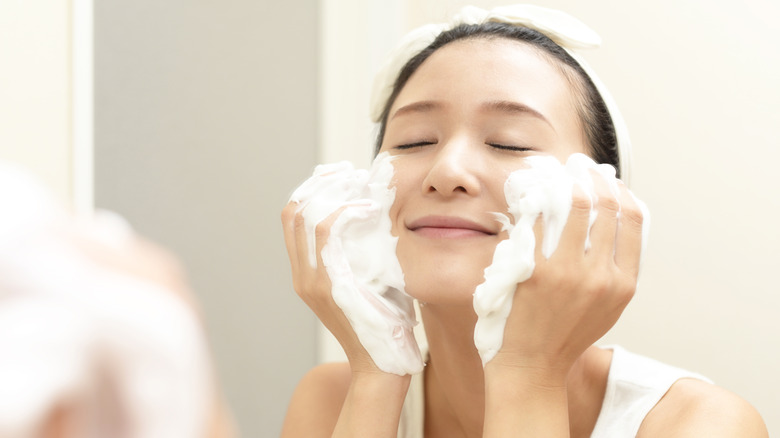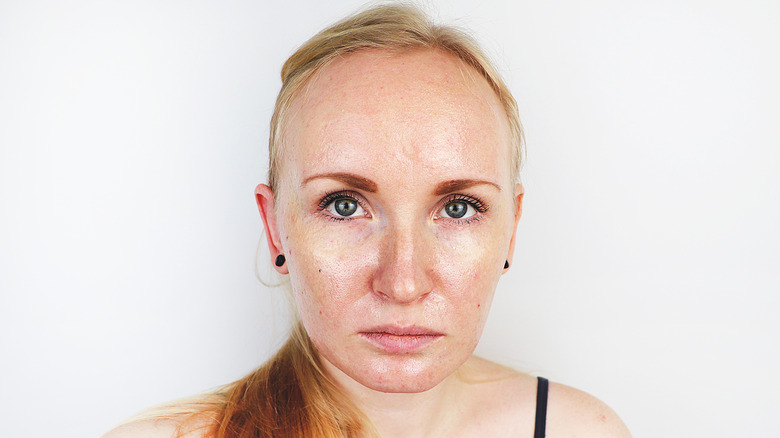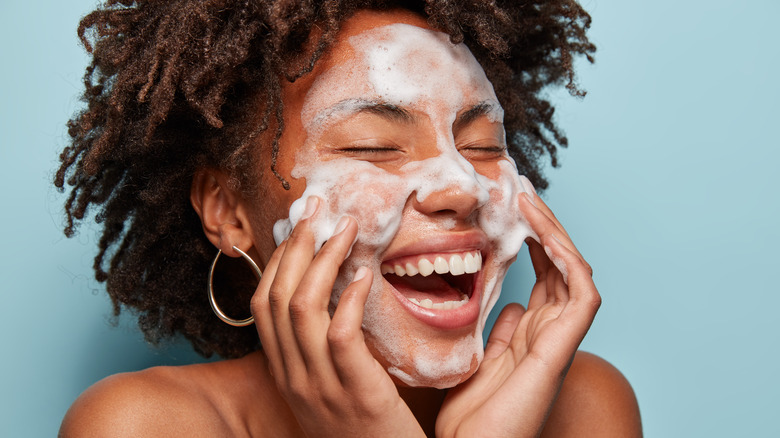Oily Skin? Here's Why A Foaming Cleanser Is Right For You
While oily skin is one skin type that can be an ongoing battle, the more you learn the best ways to treat it, the easier it will be to manage. Though there are some things about it that are beyond your control, there are a few easy lifestyle tips that can keep the oil at bay.
Oily skin results from overactive sebaceous glands and is often genetic, notes Healthline. However, sometimes your skincare routine can contribute to producing more oil. Oddly enough, exfoliating too often and not using a moisturizer can cause the skin to become so dry that sebaceous glands try their best to make up for it and produce too much of an oily substance known as sebum. Though, if you slab on too much heavy moisturizer, especially during warm weather, that can quickly amp up the oil, too.
One of the best things to control oil is to create a healthy cleansing routine and here's why you'll want to include a foaming cleanser.
Why foaming cleansers work so well for oily skin
There are many cleansers out there claiming to curb oily skin, and while some work well, foaming cleansers are a step ahead. "Foaming cleansers are more effective at removing oil compared to other types of face washes," dermatologist Dr. Lindsey Zubritsky told Real Simple. "This is because it penetrates a bit deeper into the skin, effectively removing oil and sebum from your pores."
Though it may make sense to think that oily skin needs the strongest cleanser, a gentle cleaner is the most effective. "It's important to still be as gentle as possible to your skin, even if your skin is oily," explains Zubritsky. "I would avoid harsh scrubs, like those with walnut or apricot shells as the active ingredients."
After you cleanse, put on a light moisturizer right away before the skin is fully dry to keep the moisture sealed in. This will ensure that your skin doesn't dry out and that sebaceous glands won't over-activate.
Ingredients to look out for in foaming cleansers
Since oily skin often leads to breakouts, some ingredients work better for oily skin than others. "Salicylic acid is a key ingredient for acne," dermatologist Dr. Ifeoma Ejikeme told Women's Health. "Choose 2% cleansers and use through the week ensuring you do not over-strip the skin".
There is a belief that acne happens when skin is neglected or even dirty, but that is untrue. "Acne is not caused by unclean skin. If you have acne-prone skin you should cleanse just as much as everyone else," said Ejikeme. "It's important to effectively cleanse to ensure makeup, sunscreen, sweat, pollution, and debris are removed from the skin, reducing the risk of these leading to inflammation or occlusion of a pore."
Just like any other type of skin, oily skin requires regular keep-up. That includes both gentle cleansing and light moisturizers. Ejikeme recommends cleaning the face for just 30 seconds twice each day to keep the skin in tip-top condition.


